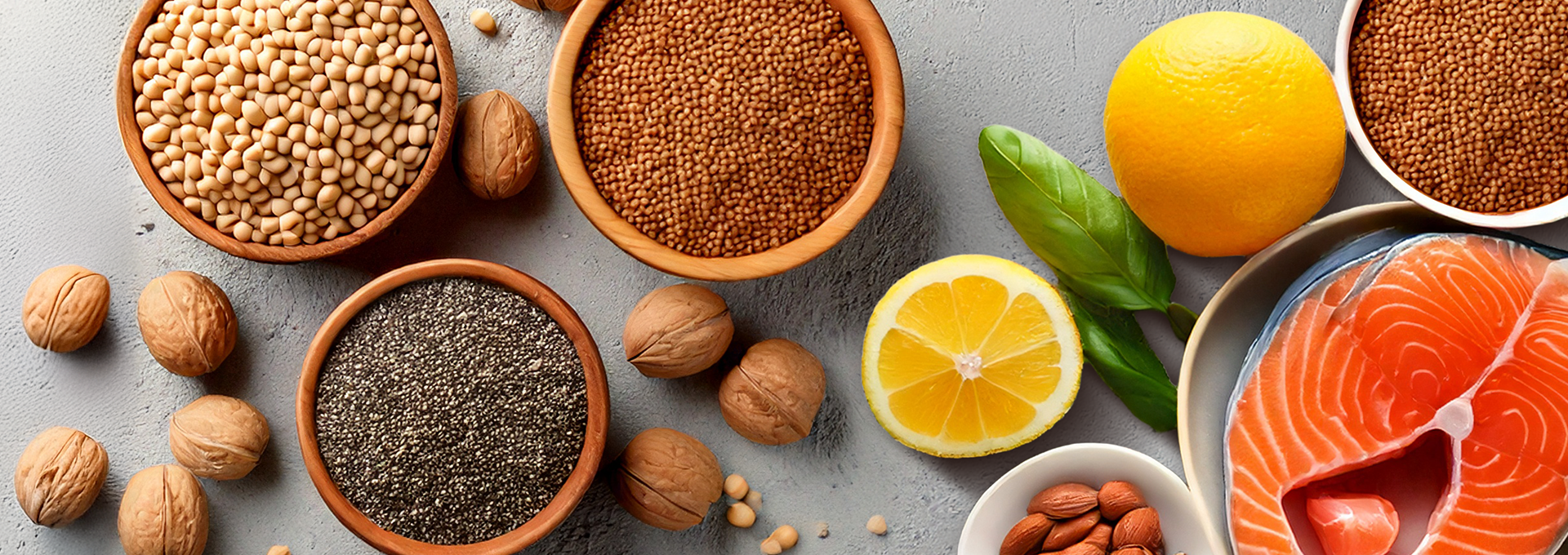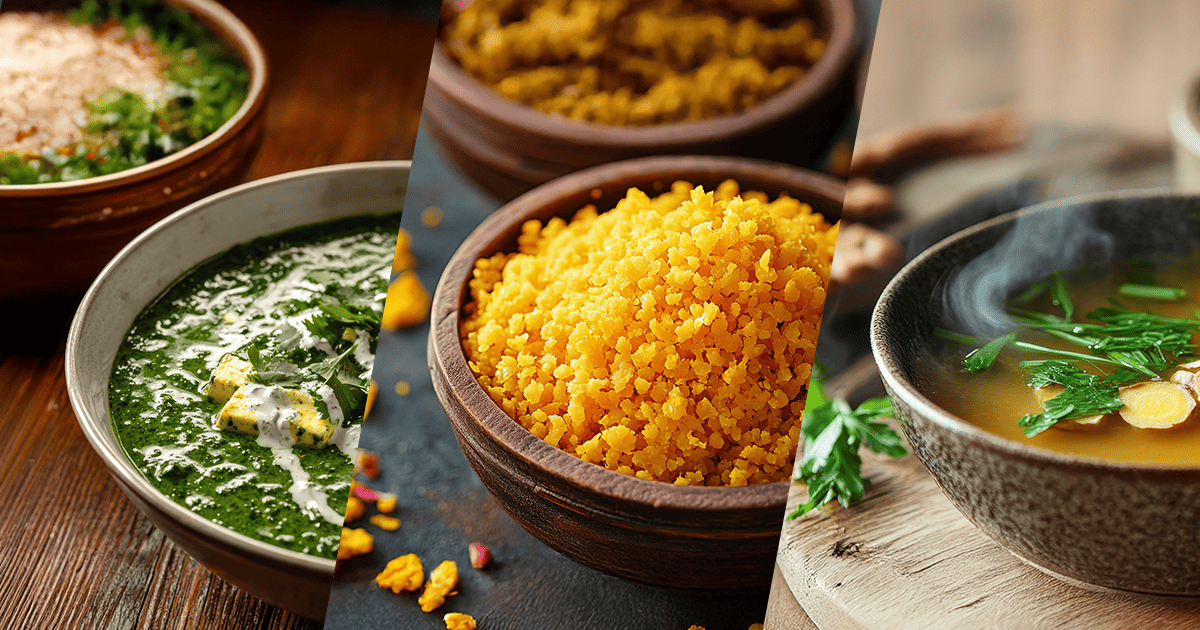
Blended Vs. Refined Oil: Which one Should You Choose?
Oils are among the biggest parts of daily cooking. While they receive criticism due to concerns about their impact on health, processing methods, and allergies, you cannot overlook their essential role. Nearly every recipe requires a certain amount of oil, yet people rarely put adequate thought into picking the correct one.
There is always a debate about the types of cooking oil you should choose. Blended oil vs. refined oil is one such example. Many prefer refined oil because it has a longer shelf life and lower smoke point. However, both come with unique benefits and characteristics.
So first, let’s find the answer to which cooking oil is good for health. You must know what refined and blended oils are to know this! Please read the article to learn about the healthiest cooking oil.
What is Blended Oil?
Blended oils are a mix of more than a single type of oil, with the proportion of each greater than 20 per cent. Oils, like rice bran and soya bean olive oil with sunflower oil, are blended to achieve a balance of nutritional properties, flavors, health considerations, smoke point and cooking characteristics.
Blended oils are versatile and can be used for a variety of cooking methods, from deep-frying to sauteing. These cooking oils add a personalized touch to the taste and texture of any meal. Their advantages over single-source oils make them a staple in households and food industries. Dieticians often promote and recommend blended oils over traditional oils that offer essential nutrients.
Benefits of Blended Cooking Oil
Blended cooking oil is popular in culinary applications because it offers numerous benefits. Health-conscious individuals and gourmet cooks prefer it for its improved stability, balanced nutritional profile, and a dose of health advantages.
In fact, blended cooking oil is considered to be the healthiest and best cooking oil. Let’s understand its benefits in detail.
1. Balanced Nutritional Profile
Cooking oils are blended in order to achieve a balanced ratio of various types of fatty acids. The balance can include polyunsaturated fats, monounsaturated fats, and saturated fats. It ensures a well-rounded nutritional profile.
For instance, a blend of olive oil rich in heart-healthy monounsaturated fats with canola oil containing less unsaturated fats creates a balance suitable for overall health.
2. Improved Stability
Blending various oils can enhance its stability, particularly at higher cooking temperatures. Certain oils are prone to oxidation and breakdown when heated at a high temperature, but combining them with oils having a high smoke point can mitigate these issues.
For example, including high-oleic oils such as safflower and sunflower in the blend can significantly increase the resistance to rancidity and the smoke point.
3. Health Benefits
Depending on the types of cooking oil used, a blended cooking oil can offer specific health benefits. Some oils are blended to manage cholesterol levels, reduce inflammation and promote heart health.
A mixture containing flaxseed oil that is rich in omega-3 fatty acids can provide potential cardiovascular and anti-inflammatory benefits. These oils offer required fatty acids and can positively impact your health.
Check: Fortune Xpert Total Balance Oil
4. Extended Shelf Life
Compared to single oils, blended oils mostly have a longer shelf life because the blend of oils helps stabilize each other. The preservatives and antioxidants added to these blends also reduce the chances of spoilage.
The extended shelf life ensures that the oil remains fresh and can be used for a long time. This, in turn, makes it an economical and practical choice for commercial kitchens and households.
What is Refined Oil?
Refined oil, as the name suggests, is the oil you get after it has been filtered of various impurities that could affect the consumption of this oil. These impurities need to be strained out to make it safe to consume.
Unlike blended oils, refined oils are extracted from a single food ingredient such as rice bran, soybean mustard, groundnut, etc. Such single-seed oils are no less important for your health than blended oils.
Refined oils have a much longer shelf life and are known to be more sanitary, healthy, and suitable for daily edible uses. However, before purchasing, you can look up “which refined oil is good for health” to ensure you buy the best refined oil.
Benefits of Refined Cooking Oil
Refined cooking oil is the magical elixir of the culinary domain. With a purity that can rival crystal-clear streams and a soaring smoke point, it is a go-to choice for home cooks and chefs alike. Some significant benefits of refined cooking oil include:
1. Higher Smoke Point
Refined cooking oils are known for their high smoke points. Refining eliminates solids and impurities that can cause burning and smoking and enhances the oil’s ability to withstand heat without breaking down or emitting undesirable flavors.
The soaring smoke point ensures that your dishes get perfectly cooked without compromising the quality. It is also more appropriate for high-temperature cooking techniques such as stir-frying, searing and frying.
2. Filtered and Cleaner
Refined cooking oils undergo a rigorous purification and filtration process, eliminating impurities, residual particles, and unwanted odors. The filtration technique elevates the purity, increases its stability, and ensures that it remains fresh and usable for an extended period.
The result is a neutral-flavored, clean oil that would not interfere with the characteristic taste of your ingredients. Hence, it is an excellent choice for dishes where you want to retain the primary flavors of the ingredients.
Conclusion
Oils can be heart-healthy only when used in moderation. The choice between refined and blended oils depends on your individual preferences, specific culinary needs, and health considerations. Refined and blended oils accompany their unique benefits. While the former offers purity and a higher smoke point, the latter brings balance and versatility.
Blended cooking oil is suitable for frying delicious treats and cooking several cuisines. Meanwhile, some refined cooking oils are low in saturated fats and ideal for baking, sautéing, and frying. It is wise to weigh their positives and downsides to select the oil that best suits your cooking requirements and taste preferences.










